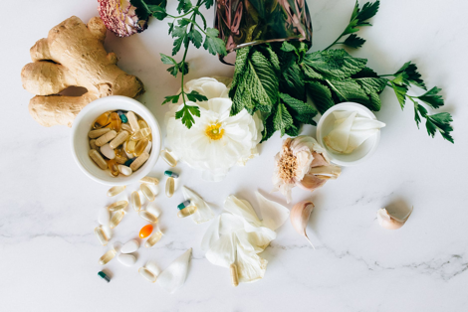We have depended on traditional medicine for thousands of years to meet our healthcare needs. And despite technological and medical advancements today, the demand for traditional medicine is still on the rise.
Some herbal remedies might be more accessible and affordable than modern medicines. Additionally, many people prefer using natural remedies that align with their ideologies.
But for all that, you might wonder whether traditional medicines are effective. Below are five popular herbal options you wouldn’t want to miss.
Ginkgo Biloba
This herbal medicine is also called maidenhair tree, native to China. Ginkgo Biloba has been long used in Chinese medicine for centuries and remains a popular herbal supplement today. It embodies many different potent antioxidants that offer a few health benefits.
The leaves and seeds are often used to make tinctures and teas, while some people like to eat the toasted seeds and raw fruit. But the seeds are quite toxic. Hence, limit intake to small quantities only, if not at all.
Ginkgo Biloba is thought to treat many health complications, too, such as sexual dysfunction, mental difficulties, dementia, heart disease, bronchitis, fatigue, and eye problems. Research on ginkgo use indicates modest improvements in memory in healthy adults.
Today, ginkgo leaves extract is promoted as a dietary supplement for tinnitus, peripheral artery disease, dementia, allergies, and anxiety. However, even though it is well-tolerated by many people, potential side effects may include skin reactions, digestive issues, heart palpitations, headache, and a high risk of bleeding.
St. John’s Wort
This herbal medicine is generally used to make extracts, capsules, and teas. St. John’s Worts are small, yellow flowers that can be traced back to ancient Greece. Still, doctors often prescribe this herbal medicine in some parts of Europe.
Based on history, SJW was used to alleviate depression and insomnia, aid wound healing, and treat various lung and kidney diseases. At present, it is primarily prescribed to aid mild to moderate anxiety.
Various studies note that using SJW in a short period is as potent as some modern antidepressants. On the other hand, there is still limited data on the long-term use of SJW for those with depression.
The possible side effects of SJW include dry mouth, confusion, dizziness, increased light sensitivity, and allergic reactions. Also, it interacts with various medications such as pain medicines, blood thinners, birth control, and antidepressants.
Take note that some drug interactions could be deadly. As such, if you take any medications, talk to your doctor first before using SJW.
Ginger
Ginger is a common herbal ingredient and medicine. You can eat it dried or fresh, but its primary forms are capsules or teas. This rhizome contains many different compounds and has long been used in folk and traditional practices to treat high blood pressure, migraines, nausea, and colds.
Today, ginger is best used for alleviating nausea linked with medical operations, chemotherapy, and pregnancy. What’s more, animal and test-tube research show the possible benefits for preventing and treating illnesses such as cancer and heart disease.
Moreover, some human studies show that ginger might mitigate your chances of blood clot formation. However, no proof shows it’s more effective than modern therapies.
Side effects are rare. Even so, large doses could cause diarrhea or heartburn. You can find ginger supplements online and at your local supermarket. To save more money buying supplements, be sure to look for sites that offer discounts, such as BuzzRx.
Chamomile
This flowering plant is one of the most popular traditional medicines globally. Chamomile is often used to make tea. However, the leaves can be dried and used for making topical compresses, medicinal extracts, and more.
For centuries, chamomile has been used to aid stomach pain, constipation, diarrhea, nausea, upper respiratory infections, wounds, and urinary tract infections. This herb is generally safe for most people.
However, it might trigger an allergic reaction, especially if an individual is sensitive to similar plants like marigolds, ragweed, and daisies.
Valerian
Valerian, also known as nature’s Valium, is a flowering plant whose roots are considered to induce a sense of calm and tranquility. The root can be dried and steeped to make tea or consumed in capsule form.
The use of this herbal medicine can be traced back to ancient Rome and Greece, where it was taken to alleviate heart palpitations, headaches, tremors, and restlessness. At present, valerian root is used to treat anxiety and insomnia.
But while this herbal option is safe, it might cause mild side effects such as digestive issues and headaches.
To Wrap Things Up
Many herbal medicines offer subtle ways to improve your health. If you decide to add traditional medicine into your routine, it is best to talk to your doctor first. In this way, you’ll know the possible side effects, proper dosage, and its interactions with other medications.










![Daily Bite [Make]: Philly Cheesesteak Stuffed Bell Peppers](https://dashofwellness.com/wp-content/uploads/2013/01/Philly-Cheesesteak-Stuffed-Pepper-Daily-Bite-1-100x70.png)
